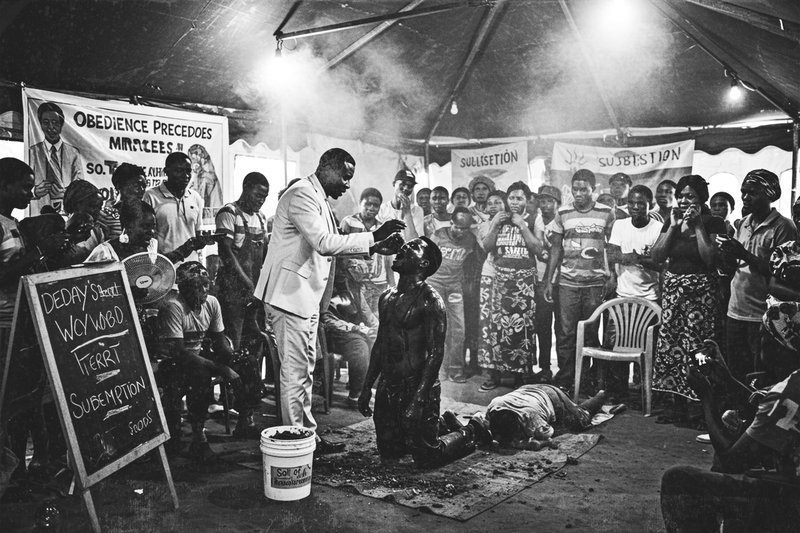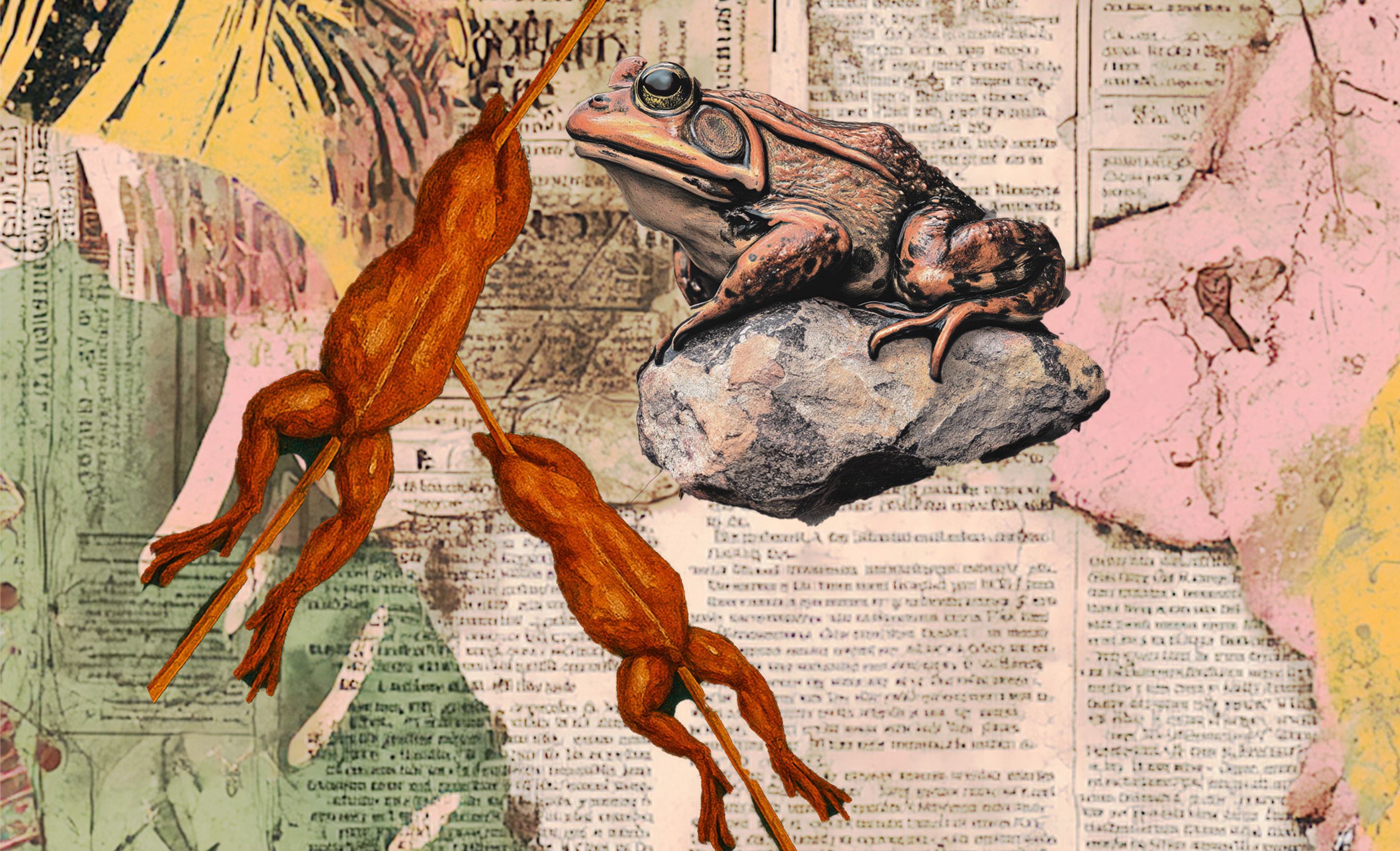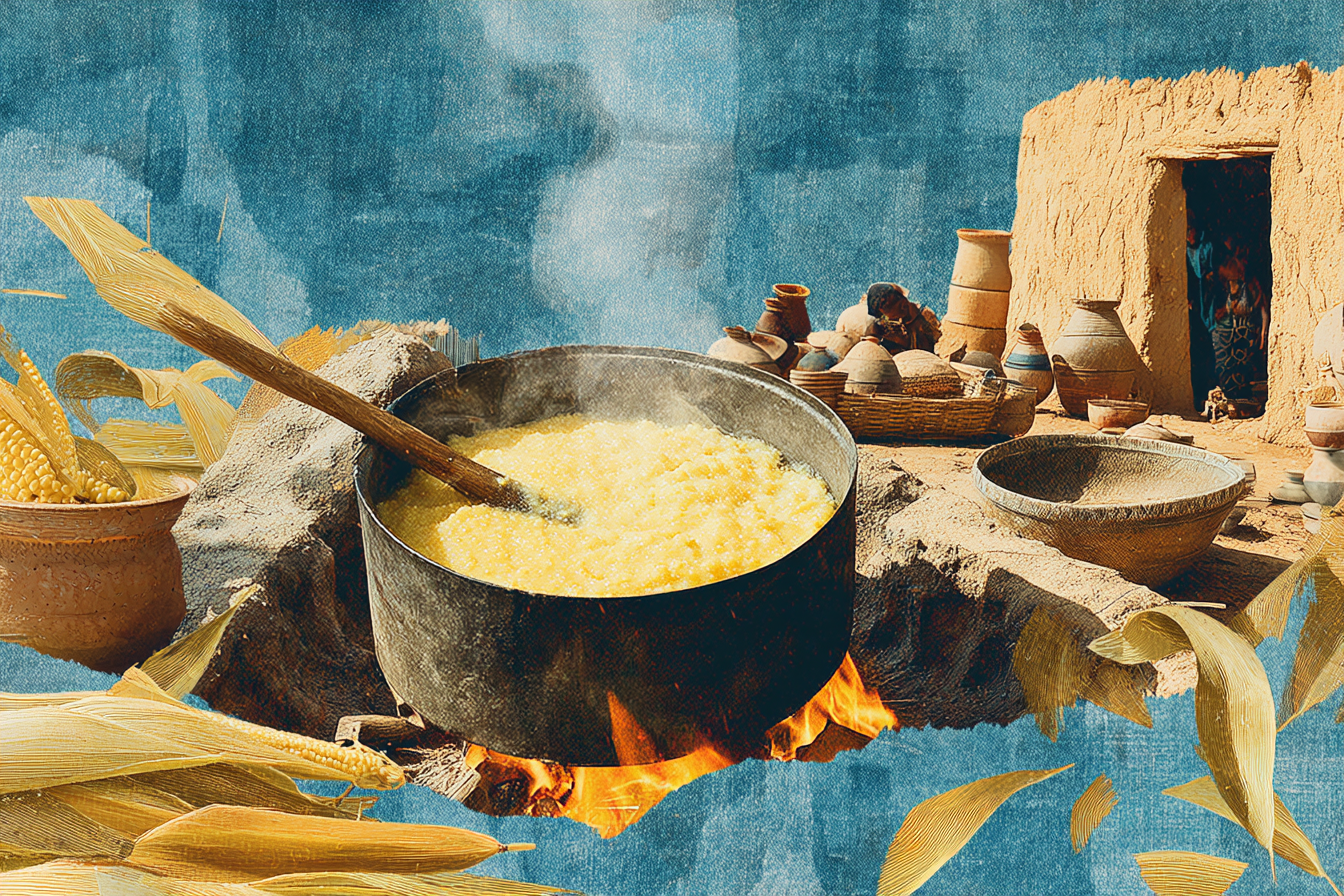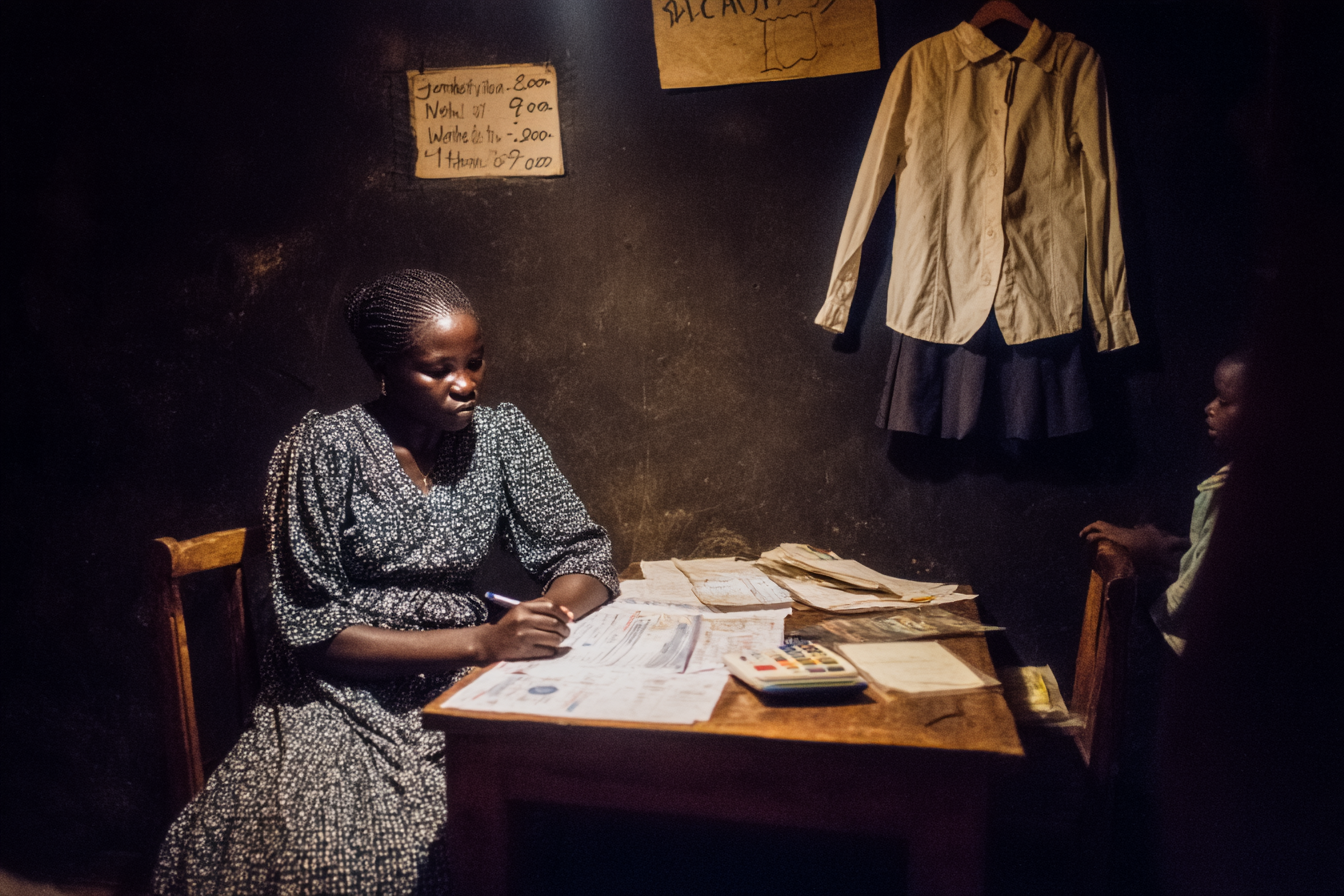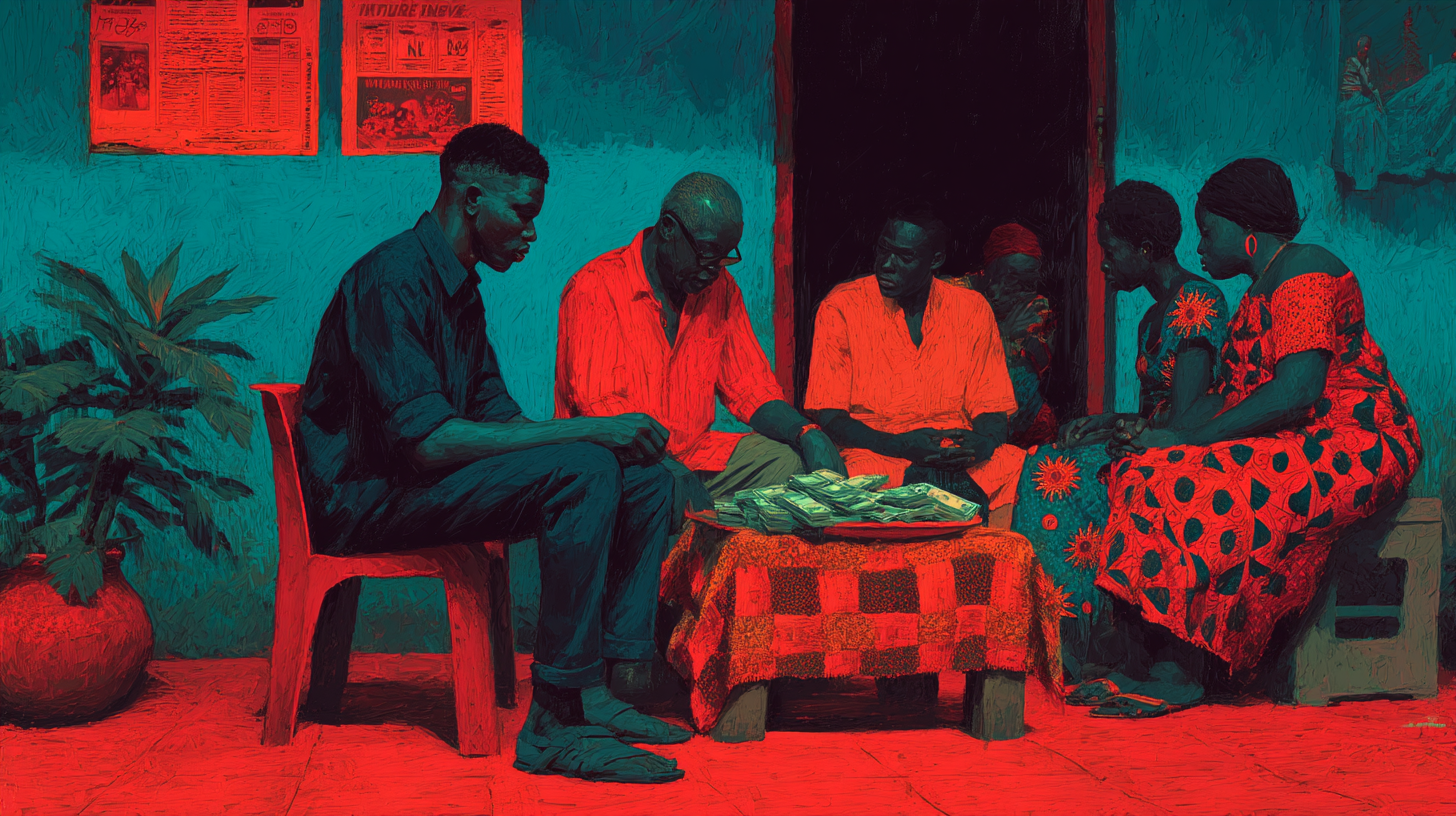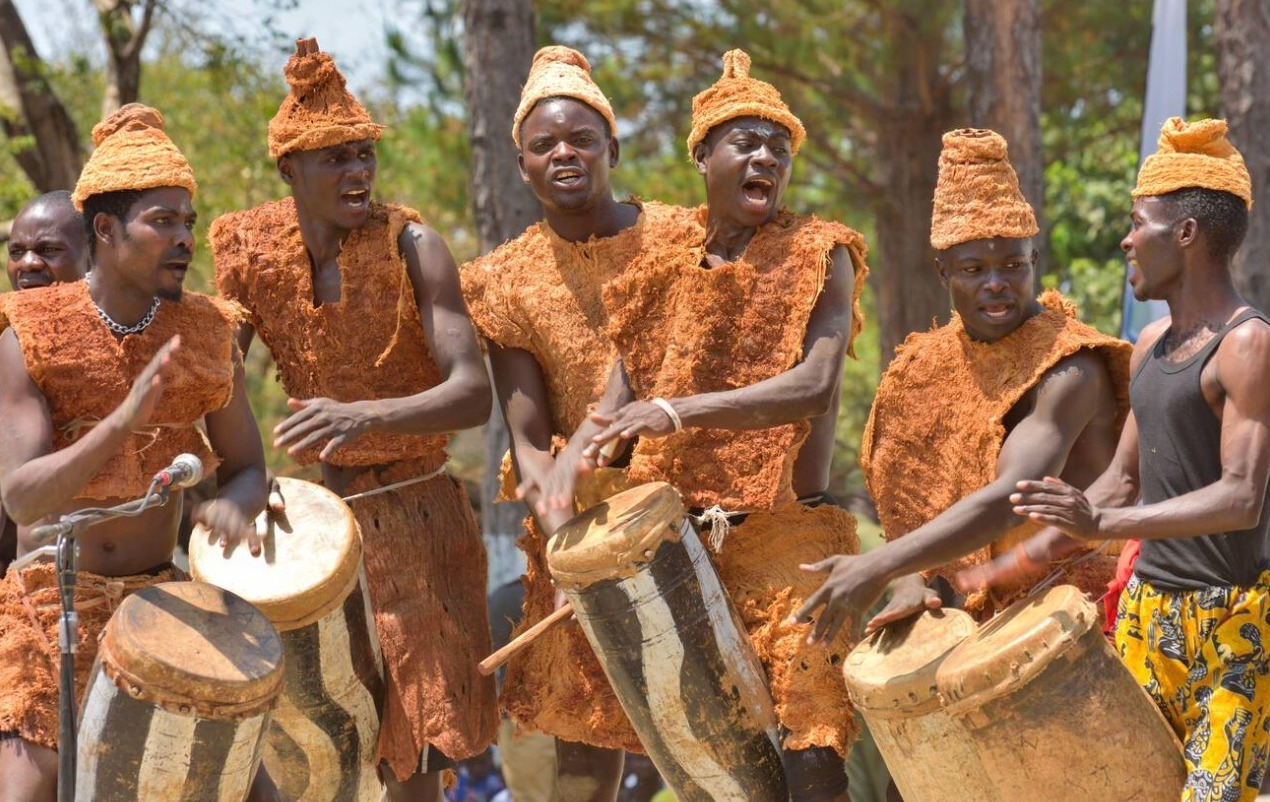From anointed underwear to buried-alive resurrection stunts, Zambia’s unchecked church industry thrives on desperation. As self-styled prophets peddle miracles for cash, the most vulnerable pay the price. How did a nation’s holy declaration become a gateway for exploitation?
On 29 December 1991, President Frederick Chiluba stood before an audience at State House and declared Zambia a Christian nation. In front of a podium, he denounced idolatry and immortality in the country and asked God to bring revival, blessing and prosperity to Zambia. The attending crowd answered with harmonies of “praise Jesus” and “hallelujah”. They stood with their eyes closed, swaying. Some hands raised in exaltation, some clasped in prayer. Hooked on every word, and convinced that this would be the gateway to prosperity that Zambia had been waiting for.
The Bizarre Economy of Fake Prophets
Now, every Sunday, the halls are filled with swaying bodies seeking salvation, and the offering is collected - more likely to come in the form of folded paper notes than clunks of metal change. There is music: melodies played by a full band and sung with passion by the congregants, a lot like the pre-show fanfare you would see at the concert of a Billboard charting superstar. And then there is the entrance of the papa/prophet/apostle/doctor - the possible titles are seemingly endless, and none of them require a degree. In a designer suit and to a flurry of applause and excitement, the pastor has arrived, and the air seems to change with him. Even though he is aware that whatever happens next in the room depends on what he says. Whether the parish decides to kneel low, jump high or withdraw their life savings and hand them over to the papa is entirely dependent on the words that come out of his mouth. He has that much power. Treading the line between Christ-like and Cult-like.
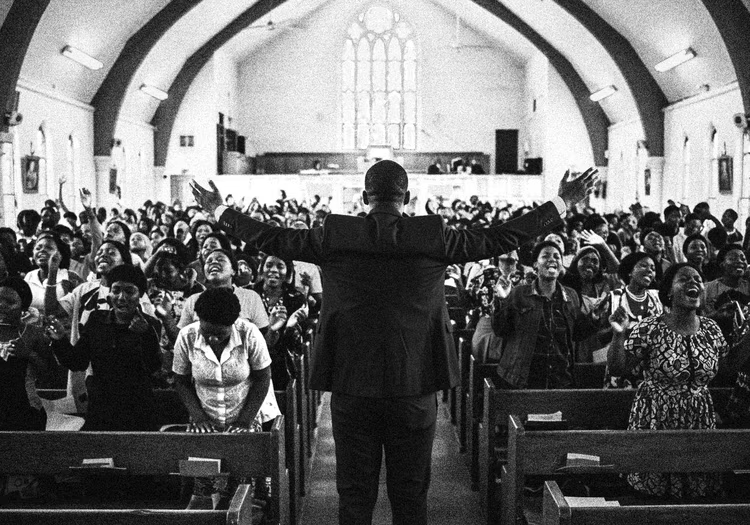
Through a prophet, you can spend your hard-earned kwacha on anointed underwear and cooking oil - so that every inch of you, inside and out, is holy and ripe for miracles and healing. Through a prophet, you can be healed from your madness and maladies with a simple spray of insecticide into your nasal passage. Through a prophet, you can experience the gift of “spiritual intimacy”- the process of having your entire spiritual being anointed just by granting him the pleasure of physical intimacy. And through a prophet, you can discover what curse or binding has been plaguing your bloodline, and for a few thousand kwacha, have him break every chain that's been holding you back and have you standing in the light of God's grace again.
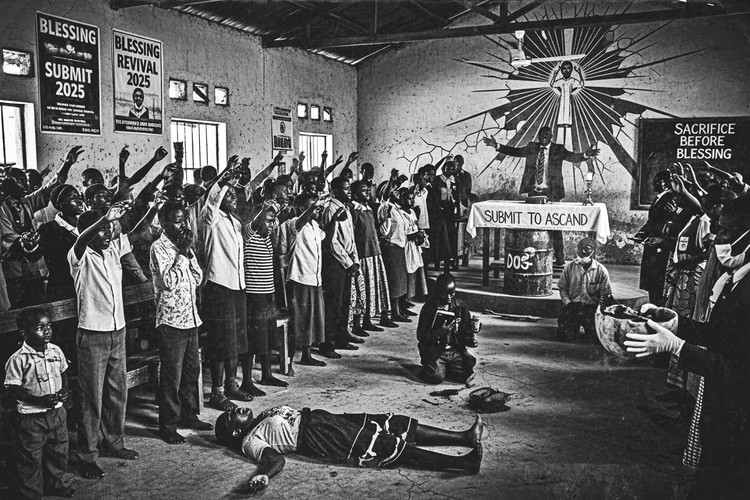
When a congregant goes to a pastor with a problem, whether they are instructed to douse themselves in petrol or turn to a verse of Proverbs depends entirely on which church they enter that day. But what is the difference? How does one distinguish between a pastor who is simply charismatic enough to fill up the pews and one who is heaven-bent on control? The bible had its fair share of weird prophets - Isaiah walked around naked and barefoot, Ezekiel liked to lie on his side for extended periods, and Jeremiah at some point hid his underwear in a rock. It almost appears that having your name included in the contents of the holy book was a requirement for being someone your contemporaries might describe as “not altogether there”. As a dedicated unbeliever, it's hard for me to imagine the state of mind a person needs to be in to not be able to spot the red flags among the white collars. But when I consider that among the basic foundations of the religion og Christianity include parables where you can part seas, move mountains, and raise the dead, all with just enough faith.
Why Fake Pastors Thrive in Zambia’s Climate of Desperation
So when I hear about James Sakara, a Zambian pastor who, in 2021, convinced his congregants to bury him alive—hands bound—to reenact Christ’s resurrection in three days, I do not place the blame on the parishioners with a shovel in search of the redo of a miracle that was the basis of all they believed in this world and the next. But on the system that allowed this to go unchecked. That saw in itself only a Christian nation that could be strengthened by prayer, but did not consider that the potential for perversion of any text could also apply to its books. They did not think to act or regulate back when the scourge began. We were unable to see that even water, which is deemed as holy in the hands of the faithful, could, in the wrong hands, contain drops of poison. Made it easier to set up a church in the country than it is to set up a business, and repeatedly failed to properly prosecute these “men of god”, leaving them both unchecked in their actions and free of their consequences. The only sufferers are the victims. The people who have been set back for simply believing. The teenage girl who was defiled by her pastor, who told her his touch would make her skin “soft and blessed”, the elderly lady who had her life savings drained by a pastor she trusted.
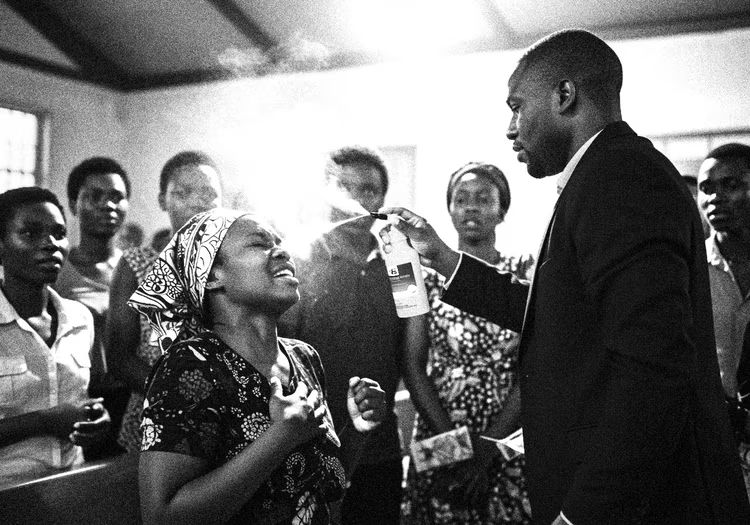
It’s an unfortunate fact that these “fake pastors” are most appealing to the people who can afford the least to be taken advantage of. Their desire for healing or stability can be so strong that they become willing to overlook red flags, justify spiritual abuse, or ignore the mounting costs, both emotional and financial. The rise in the number of fake pastors in the nation also signifies a rise in the level of hardship and hopelessness in the nation. When citizens are struggling to eat, keep the lights on and contend with the conditions constructed by a flesh-and-blood government, of course, they will turn to the church and all the spiritual promises it has to offer. They will turn to the man with claims of heavenly ties because sometimes that is simply more believable than the political promises that have been made to them. Whether the water they are offered is holy or a hoax remains a cruel game of chance.
